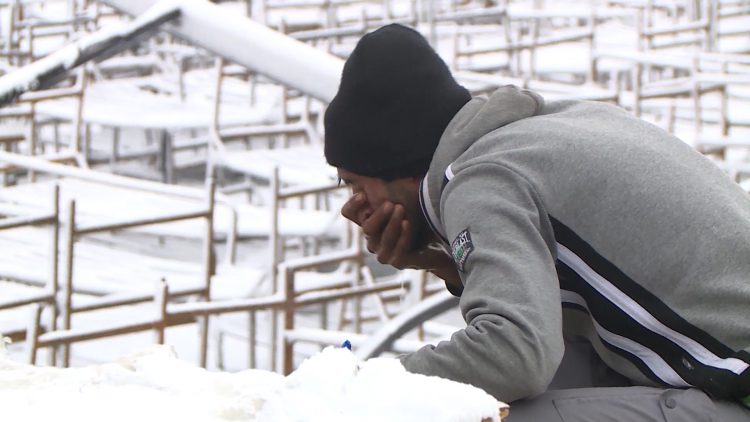
During the European Parliament's discussion on the humanitarian situation of refugees and migrants at the EU's external borders, a number of MEPs, mostly from left or centrist groups, strongly criticised Croatia's treatment of migrants at its border with Bosnia and Herzegovina.
Some of those MEPs described Croatia's treatment of migrants as shameful as the issue was discussed during a debate on conditions in migrant camps in Greece.
An estimated 7,000-9,000 migrants are stranded in Bosnia and Herzegovina, trying to pass through Croatia and reach western or northern Europe. Two thirds of them are in makeshift centres in the northwestern Una-Sana Canton and in the wider Sarajevo area, while others have been staying in abandoned buildings or in woods near the border with Croatia.
The MEPs who criticised Croatia claimed that the local police forcibly pushed back migrants to Bosnia.
A number of MEPs insisted that the European Union carry out an investigation and make sure that Croatian law enforcement authorities discontinued such practice.
Croatian MEP: Attacks against Croatia unfounded, politically motivated
Commenting on the criticism against Croatian authorities over the unlawful treatment of migrants, HDZ MEP Karlo Ressler claimed those were “unfounded and politically motivated attacks against Croatia, Greece, Frontex and basically, the European border protection policy.”
“The real causes of this humanitarian situation are porous borders and the lack of border and institutional capacity in Bosnia and Herzegovina as well as the not always adequate European engagement in our immediate neigbourhood,” said Ressler.
He said that the EU should insist on political will and investment in Bosnia and Herzegovina to strengthen the country's capacity to control its borders.
“Only that way can the unceasing repetition of the suffering that degrades human dignity be avoided,” he concluded.
Croatian Social Democrat MEP Tonino Picula said that the situation on the Croatia-Bosnia border was “increasingly bad and additionally accentuates the non-functioning of Bosnia and Herzegovina institutions and the obsolete Dayton system.”
Opening the debate, European Home Affairs Commissioner Ylva Johansson said that the European Commission and Croatian authorities were in constant dialogue and that she expected an independent mechanism to be established soon to monitor conduct on the border.
The migrant crisis in Bosnia and Herzegovina is unnecessary and it could have been avoided had the Bosnia and Herzegovina authorities responded responsibly, she said, calling on them to show political will and find long-term solutions, including the establishment of accommodation facilities for migrants throughout the country's territory.





Kakvo je tvoje mišljenje o ovome?
Budi prvi koji će ostaviti komentar!